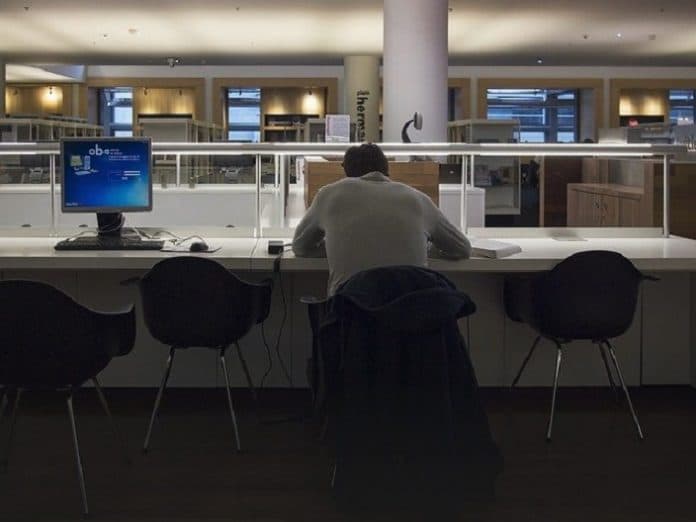A quarter of UK office workers are putting in overtime hours every single day, a new nationwide survey into work life balance has revealed.
Looking closely at workers’ habits towards breaks and computer use, focusing on screen time. the study sought expert comments on the mental impact of skipping breaks, and offers advice on how to combat it.
The Digital Detox survey, conducted by Just Eat for Business, found that of those who are putting in overtime, most are business owners, while those in management positions spent the least time working overtime overall.
This level of overworking appears to affect mental health, as the survey also revealed that 44 per cent of office workers sometimes or always experience burnout in their current role.

Described as “a state of physical and mental exhaustion which can occur when one experiences chronic workplace stress”, burnout was recently classified as a workplace phenomenon’ by the World Health Organisation.
The study found that more than a third of workers are skipping more lunch breaks now than they were this time last year, while one in five check platforms such as Slack every hour – even when they’re on annual leave.
Separate findings from HSE showed the rate of sickness reports by workers experiencing stress, depression or anxiety is currently significantly higher than pre-coronavirus levels.
There appears to be a correlation between those who skip breaks and those who feel burnt out, with 73% of workers who report feeling burnout also admitting they don’t take a break until lunch, while 46% don’t stop looking at their screen until the end of the working day.
And with work from home advice now at employers’ discretion, the focus is on them to encourage regular screen breaks to avoid these mental health repercussions, according to the authors.
We often find ourselves taking breaks from our computer screens by scrolling on another screen, via our phones
Dr Anneli Gascoyne, Associate Professor in Occupational Psychology at Goldsmiths University, said: “When we’re focusing our attention on our screens, we’re using physical and psychological resources (including energy, motivation and concentration) even if we don’t realise it. Like batteries, these resources aren’t in limitless supply, and need to be recharged.
“Yet, we often find ourselves taking breaks from our computer screens by scrolling on another screen, via our phones, and then in the evening we take a break from our phones by watching telly – or perhaps attempting both at the same time!
“These aren’t the restorative activities we might think they are. They might feel pretty mindless, but they’re still hooking our attention. And we then find that, when we put our head on the pillow at night, all the concerns and ideas of the day start to flood into our awareness, when we should be sleeping.”
Rosie Hyam, People Partner at Just Eat for Business agreed: “Regardless of how teams are working – whether it’s in the office, at home, or a hybrid solution – it’s essential to take regular breaks. Without these, it’s not surprising that so many workers are feeling more burnt out than before.
“Given the emphasis currently being placed on health and wellbeing, it’s important that employers and employees prioritise sustainable and healthy working habits – including taking more regular screen breaks, and setting time aside to socialise with colleagues.
“Organisations may want to consider organising regular events that encourage time away from screens, and offer opportunities for team bonding – such as weekly catered in-office lunches, or food deliveries for at-home workers.”
See the full results from the Digital Detox survey here


